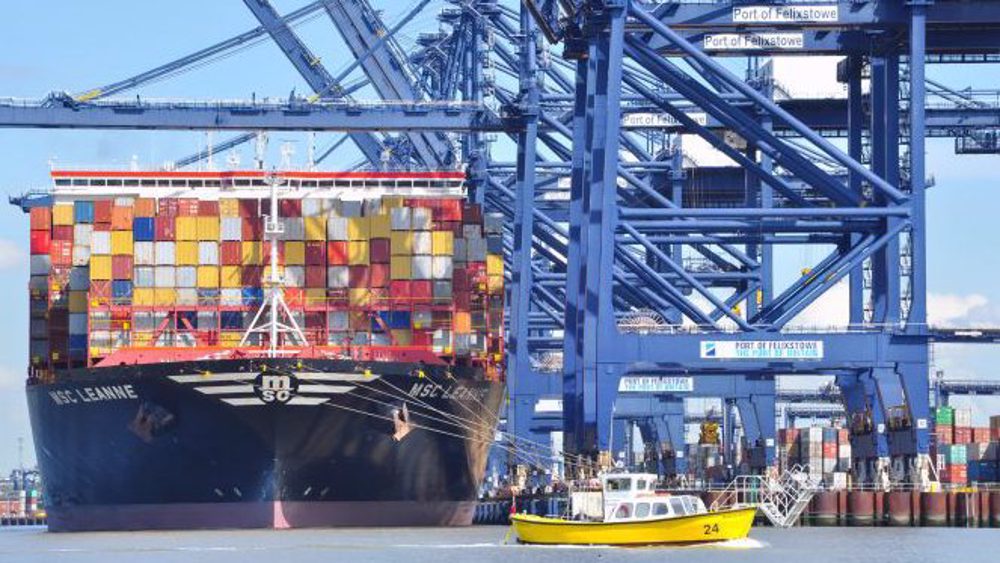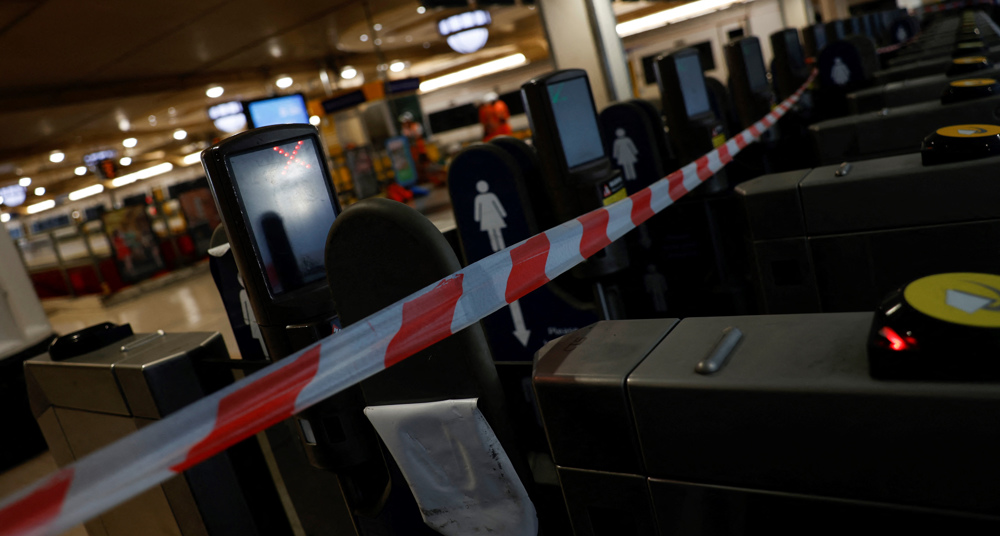Planned eight-day strike at port threatens UK’s supply chains
The most significant of a growing wave of strikes in Britain will go ahead with an eight-day walkout after pay talks broke down with employers at Felixstowe port in Suffolk, England.
Nearly 2,000 Unite Union members voted to go on strike starting on August 21 and ending on August 29 at the Port of Felixstowe, the UK’s largest container port, after talks between employers and the union broke down a week ago.
In late July, 92 percent of union members voted for strike action after Felixstowe Dock and Railway Company rejected an offer of a 5% pay increase from the employer. Company figures suggest the average annual pay of the workers involved is £43,000.
The union has repeatedly called for the port to make “a reasonable offer,” citing the current 11.9 percent retail inflation in the UK. Further, they said that members, while keeping the port functioning during the pandemic, only received a 1.4% wage increase in 2021.
“Felixstowe needs to stop prevaricating and make a pay offer which meets our members expectations,” Bobby Morton, the Unite national officer for docks, warned, calling for immediate negotiations.
The employees say that workers’ pay is not keeping up while Felixstowe and its parent company CK Hutchison Holding, holding interests in 52 ports in 26 countries, “are both massively profitable” while also paying large shareholder dividends.
Unite reported that workers would also strike over “the company not undertaking a promised pay review [in 2021], which last happened in 1995, and failing to deliver on an agreement to improve shift rotas.”
While the strike is scheduled to last only eight days, union officials have predicted that “it will generate massive shockwaves throughout the UK’s supply chain,” further knocking the British economy as it braces for recession.
A spokesperson for Felixstowe Dock and Railway Company said that the port had not had a strike since 1989.
Felixstowe is the eighth-largest container-port in Europe and around half of containers brought into the UK are transported via the port. It is the primary deep-water port for the UK, including on the routes from Asia operated by most of the major container lines.
Analysis by the Russell Group warned of the disruption of over $800 million in trade overall. Based on previous trade flows at the port during August, clothing ($82.8 million) and electronic components ($32.3 million) are the commodities that would be most impacted by the strike.
Many experts believe that because of the disruption at Felixstowe, trade will be diverted to other terminals in the country and also other international ports, including Rotterdam ($108 million) and Hamburg ($138 million).
This is while due to climate change, water level has fallen in the Rhine River, which will cause further trade disruptions within Central Europe and, in particular, Germany.
The main fear of the union bureaucracy, shared with the company and the Tory government, is that the strike might quickly spread, mobilizing one of the most powerful section of workers in the country and internationally.
Transportation workers and train drivers on Great Britain’s railways have also gone on several strikes during the last year. The pay dispute is the latest in a series of problems to hit UK transport infrastructure.
Iran says its investments in Venezuela face no major risk
Make ‘right decision’ or face more US pressure, Rubio tells Venezuela’s Rodriguez
VIDEO | General Soleimani honored in Kashmir, Kargil
US, Israel waging ‘soft warfare’ to destabilize Iran after June defeat: Top general
VIDEO | Hundreds brave wind and cold to show solidarity with Gaza in Berlin
Israel kills more Palestinian civilians in Gaza amid ceasefire violations
VIDEO | Paris protest condemns US aggression against Venezuela
Pope Leo says Venezuela must remain an independent country















 This makes it easy to access the Press TV website
This makes it easy to access the Press TV website